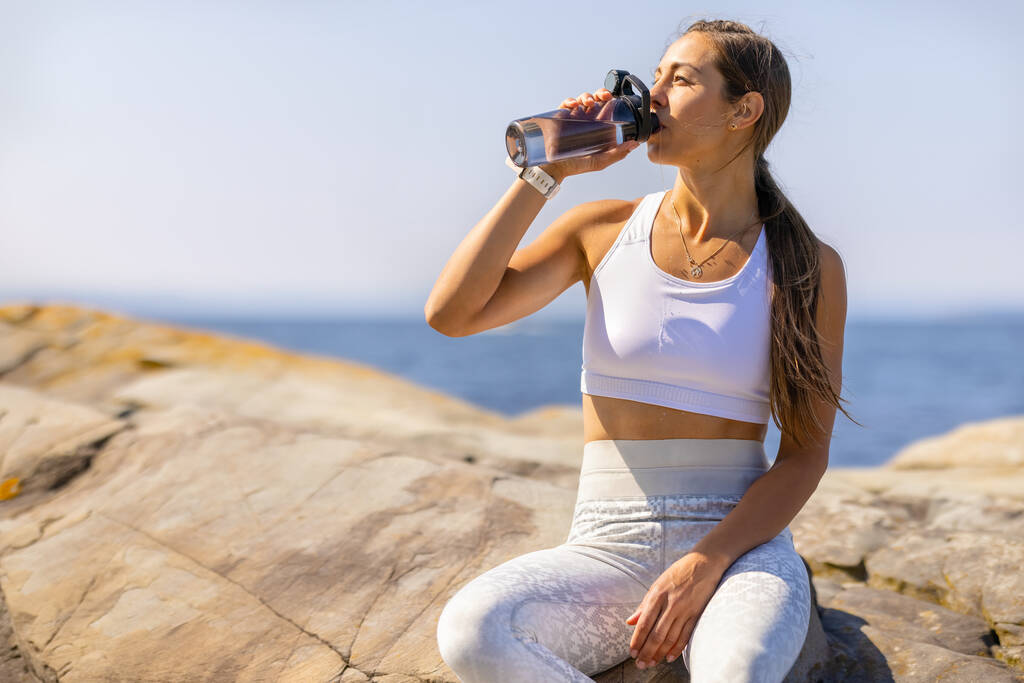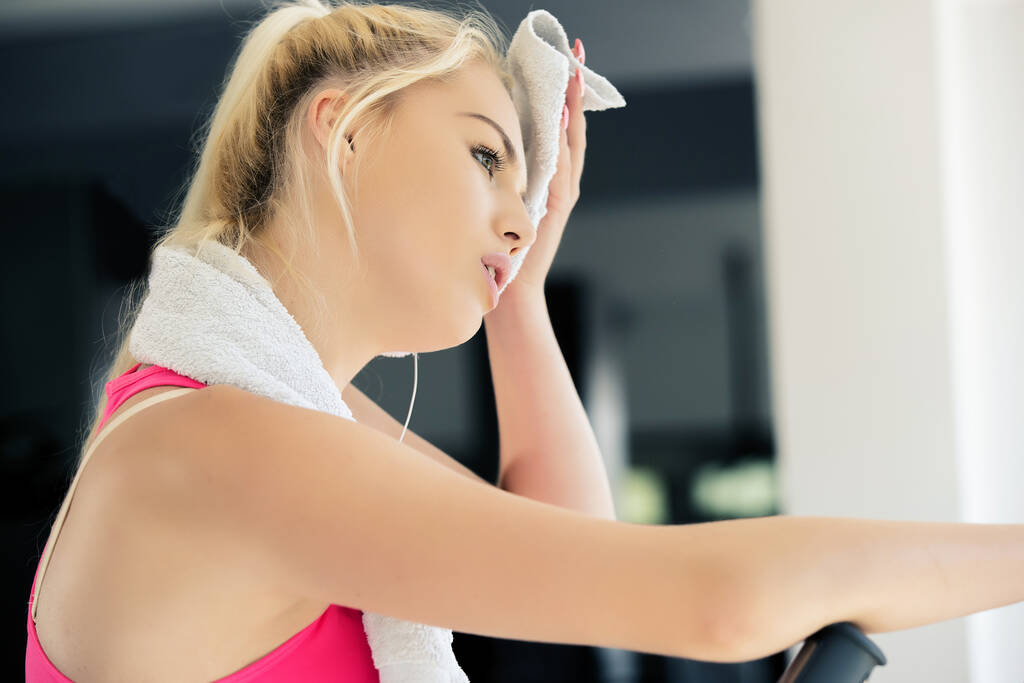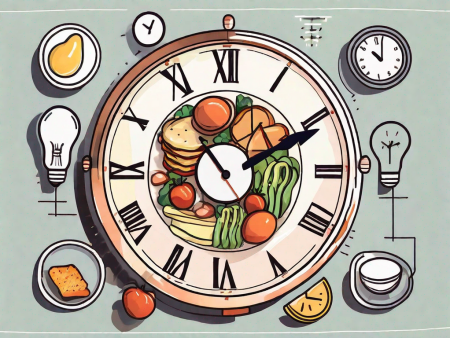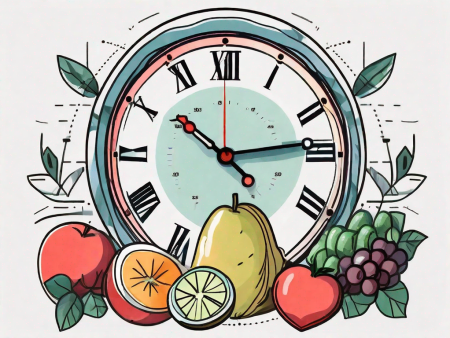Discover the impact of hydration levels on your energy levels and learn how to optimize your hydration for increased vitality and productivity.
How Hydration Levels Affect Your Energy Levels
Have you ever wondered why some days you feel super energized, while other days you struggle to find the motivation to do even the most basic tasks? Well, my friend, the answer might just lie in your hydration levels. That’s right, staying hydrated can have a tremendous impact on your energy levels. So, grab a glass of water and let’s dive into the fascinating world of hydration and energy!

Understanding Hydration and Energy Levels
Before we get into the nitty-gritty, let’s take a moment to appreciate the importance of hydration for our incredible human bodies. Our bodies are made up of around 60% water, which means we need to keep the hydration levels in check to function at our best. Hydration plays a crucial role in maintaining body temperature, lubricating joints, and transporting nutrients and oxygen to our cells.
Now, let’s talk about energy. Energy is like the magical fuel that keeps us going throughout the day. It helps us conquer mountains, tackle challenges, and maybe even dance like nobody is watching (we won’t judge!). Our energy levels are affected by various factors, and hydration happens to be one of the big players in the game.
The Importance of Hydration for the Human Body
Hydration is not just about quenching your thirst on a hot summer day. It’s a continuous process that keeps our body functioning optimally. When we don’t consume enough fluids, our body can become dehydrated, which leads to a whole host of problems, including low energy levels.
When we’re dehydrated, our blood volume decreases, which means our heart has to work harder to pump oxygen and nutrients to all parts of the body. This increased effort can leave us feeling tired and drained, like a deflated balloon.
But that’s not all. Dehydration can also affect our brain function. Research has shown that even mild dehydration can impair cognitive performance, making it harder for us to concentrate, remember things, and make decisions. So, staying hydrated is not only important for our physical well-being but also for our mental sharpness.
Furthermore, dehydration can have a negative impact on our mood. Studies have found that even mild dehydration can lead to feelings of fatigue, irritability, and decreased motivation. So, if you want to keep your energy levels up and maintain a positive mindset, it’s essential to prioritize hydration.
The Connection Between Hydration and Energy
Now, let’s connect the dots and see how hydration directly impacts our energy levels. When we’re properly hydrated, our body functions efficiently, allowing nutrients and oxygen to reach our cells more effectively. This enhanced circulation ensures that our muscles and organs receive the energy they need to keep us going strong.
On the flip side, when we don’t drink enough fluids, our body can’t efficiently transport those precious nutrients and oxygen. As a result, our energy levels take a nosedive, leaving us feeling sluggish and zapping the joy out of our day.
But it’s not just about the quantity of fluids we consume; the quality matters too. Sugary drinks and caffeinated beverages may provide a temporary energy boost, but they can also lead to dehydration in the long run. It’s best to opt for water, herbal teas, and natural fruit juices to stay hydrated and energized throughout the day.
Additionally, it’s worth mentioning that our hydration needs can vary depending on various factors such as climate, physical activity, and overall health. For example, if you’re engaging in intense exercise or spending time in a hot and humid environment, you’ll need to increase your fluid intake to compensate for the additional loss through sweat.
So, the next time you’re feeling low on energy, take a moment to assess your hydration levels. Are you drinking enough water? Are you fueling your body with the fluids it needs to function optimally? Remember, staying hydrated is not just a matter of quenching your thirst; it’s a vital component of maintaining your energy levels and overall well-being.
The Science Behind Hydration and Energy Levels
Now that we understand the basics, let’s delve deeper into the scientific aspects of how hydration affects our energy levels.
Water, the elixir of life, plays a crucial role in maintaining our energy levels and keeping our bodies functioning optimally. Our body is a marvelous machine that relies on a complex network of chemical reactions to produce the energy we need to rock those epic dance moves or conquer mountains (you do you!). One significant factor in this energy production process is water.
When we don’t consume enough water, our blood becomes thicker, hindering the flow of oxygen and nutrients, and the efficiency of energy production. It’s like trying to navigate through a dense forest with thick undergrowth – every step becomes a struggle, and the simplest tasks feel like climbing Mount Everest (not that we’ve done that, but we can imagine!).
The Role of Water in Metabolic Processes
Metabolism is like a speed demon in our bodies, constantly working to break down food and convert it into energy. Water is the secret sauce that keeps this speedy process running smoothly. It helps break down carbohydrates, fats, and proteins, releasing the energy trapped within and giving us the spark we need to go about our day.
Imagine your metabolism as a well-oiled machine, churning away to transform the food you eat into usable energy. Without sufficient water, this machine hits the brakes, and our energy levels take a major blow. It’s like trying to fuel a Ferrari with an empty gas tank – not going to get very far, are we?
Water not only aids in the breakdown of food but also helps transport the nutrients and energy to different parts of our body. It acts as a highway, ensuring that the vital components reach their intended destinations efficiently. Without enough water, this transportation system becomes sluggish, and our energy levels suffer as a result.
Furthermore, water is involved in the regulation of body temperature. When we exercise or engage in physical activities, our body temperature rises. Sweating is our body’s way of cooling down, and it requires water to carry out this process effectively. If we’re dehydrated, our body struggles to regulate its temperature, leading to fatigue and a decline in energy levels.
It’s important to note that our hydration needs may vary depending on various factors such as climate, activity level, and overall health. So, it’s crucial to listen to our bodies and ensure we’re providing them with adequate hydration to maintain optimal energy levels.
Symptoms of Dehydration and Low Energy
Now it’s time to get real and recognize the signs that our body throws at us when we neglect our hydration levels.
Dehydration is a condition that occurs when the body loses more fluids than it takes in. It can creep up on us like a villain in the night, leaving us feeling weak and exhausted. Keep an eye out for symptoms like dry mouth, dark urine, fatigue, dizziness, and headaches. These are all red flags that your body is not getting the hydration it needs.
When you’re dehydrated, your body’s fluid balance is disrupted, which can affect your energy levels. Feeling like you’re running on empty? Well, it might be a sign that you need to up your hydration game. Low energy levels often go hand in hand with dehydration. When you don’t have enough fluids in your body, your cells don’t function optimally, leading to fatigue and a lack of energy.
But why does dehydration cause low energy levels? The answer lies in the way our body functions. Water is essential for various bodily functions, including the transportation of nutrients and oxygen to cells, the regulation of body temperature, and the removal of waste products. When we don’t have enough water in our system, these processes become less efficient, resulting in a decrease in energy levels.
So, instead of reaching for that extra cup of coffee to combat your fatigue, grab a water bottle and give your body the hydration it’s craving. Water is the best source of hydration, as it is calorie-free and easily absorbed by the body. By staying properly hydrated, you can help maintain your energy levels and keep your body functioning at its best.
Hydration Strategies to Boost Energy
Now that we understand the importance of hydration for energy levels, let’s explore some strategies to keep ourselves adequately hydrated and bouncing with energy!
Optimal Water Intake for Energy Levels
There’s no one-size-fits-all when it comes to water intake. Factors like age, activity level, environment, and overall health determine how much fluid we need to guzzle. As a general rule of thumb, aim for around 8 cups (64 ounces) of water per day, but adjust it according to your individual needs.
But let’s dive deeper into the factors that influence our optimal water intake. Age plays a role in determining how much water we need. As we age, our bodies become less efficient at conserving water, so it’s crucial to stay hydrated to maintain optimal energy levels.
Activity level is another important consideration. If you’re engaging in intense physical activity, you’ll need to increase your water intake to compensate for the fluids lost through sweat. On the other hand, if you have a sedentary lifestyle, you may not require as much water, but it’s still essential to stay adequately hydrated to support your body’s functions.
The environment we’re in also affects our water needs. Hot and humid climates increase the risk of dehydration, so it’s crucial to drink more water to stay energized and avoid heat-related illnesses. Additionally, high altitudes can cause increased urination and faster breathing, leading to higher water loss, so it’s essential to drink more water in these conditions.
Our overall health also plays a role in determining our optimal water intake. Certain medical conditions, such as kidney stones or urinary tract infections, may require increased water consumption to prevent complications. It’s always best to consult with a healthcare professional to determine the right amount of water for your specific health needs.
- Carry a water bottle with you wherever you go. It’s like having a trusty hydration sidekick always at your disposal. Whether you’re at work, running errands, or hitting the gym, having a water bottle within reach serves as a constant reminder to stay hydrated and energized.
- Add some flavor to your water game by infusing it with fruits or herbs. Not only does it taste amazing, but it might also make you feel like you’re sipping on a fancy spa drink. Try adding slices of lemon, cucumber, or mint leaves to your water for a refreshing twist.
- Set reminders to drink water throughout the day. Our busy lives can easily distract us from taking care of our hydration needs, so a gentle nudge can go a long way. Use smartphone apps or even simple sticky notes to remind yourself to hydrate regularly.
Hydrating Foods and Their Impact on Energy
Water doesn’t just come in the form of a refreshing beverage. Many delicious foods are also packed with hydration goodness. Load up on water-rich fruits and veggies like watermelon, cucumbers, oranges, and strawberries. Not only will they quench your thirst, but they’ll also provide you with vitamins and minerals that help boost energy levels.
Let’s take a closer look at some of these hydrating foods and their impact on energy levels. Watermelon, with its high water content and natural sweetness, not only keeps you hydrated but also provides a good dose of vitamins A and C, which are essential for maintaining optimal energy levels. Cucumbers, with their crisp texture and high water content, are not only refreshing but also rich in electrolytes, which help regulate fluid balance in the body and support energy production.
Oranges, known for their refreshing citrus flavor, are not only a great source of hydration but also pack a punch of vitamin C, which plays a vital role in energy metabolism. Strawberries, with their vibrant color and juicy texture, are not only a delicious snack but also provide a good amount of water and antioxidants that help fight fatigue and keep you energized throughout the day.
So, don’t limit yourself to just drinking water to stay hydrated. Incorporate these hydrating foods into your diet to boost your energy levels and enjoy the delicious flavors they offer.
The Impact of Hydration on Physical Performance
Now let’s see how hydration plays a crucial role in unleashing our inner athlete.

Hydration and Endurance in Sports
Whether you’re a casual jogger or a seasoned athlete, staying properly hydrated is vital for optimal performance. When we sweat during exercise, we lose fluids and electrolytes, affecting our energy levels and potentially leading to fatigue and muscle cramps. So, before you hit the track or the yoga mat, make sure to hydrate like a boss!
Hydration’s Role in Muscle Recovery and Energy Restoration
Exercise can leave our muscles screaming for some TLC. And guess what? Hydration is here to save the day! Drinking water after a workout helps replenish lost fluids and promotes muscle recovery, allowing us to bounce back quicker and keep that energy fire burning strong.
So, my friends, the connection between hydration and energy is undeniable. Making sure you drink enough fluids throughout the day can give you the energy boost you need to conquer whatever life throws your way. So, raise your water bottles high and let the hydration-energy dance begin!








Your article helped me a lot, is there any more related content? Thanks!
Thanks for sharing. I read many of your blog posts, cool, your blog is very good. https://www.binance.com/ur/register?ref=WTOZ531Y